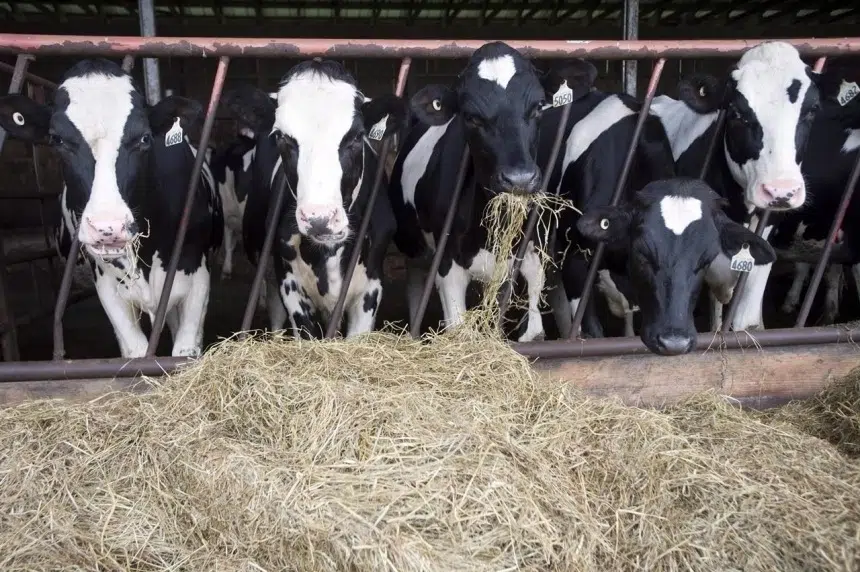Dairy producers in Western Canada are feeling the crunch of COVID-19, with their product getting tossed down the drain in the current climate.
SaskMilk policy and communications manager Joy Smith said there is a lower demand for dairy products across the country, the U.S. and the world, which means the products currently out there are getting tossed out.
“Dairy being the product that it is and being highly perishable, it’s kind of getting caught in this really fluctuating and unpredictable demand that is happening,” Smith told the Greg Morgan Morning Show this week. “It’s affecting all dairy producers.”
She said with demand changing daily, and even hourly, it’s hard to quantify how much milk is being wasted.
“Sometimes we’ll have, ‘Well, this is what (the demand) is supposed to be two days from now,’ and then that changes before it even gets there,” Smith said. “Basically what we’re doing is working every day to try and find a home for more and more milk at the processors and trying to send it anywhere that it can go and get processed so we’re trying to minimize (the waste) as much as possible.”
Smith said SaskMilk is trying to set up programs to donate milk to organizations such as food banks.
“In Saskatchewan, SaskMilk has approved a huge amount of litres to be turned into product for donation to food banks but unfortunately milk still has to be processed,” Smith said. “We can’t just send it right from the farm to the food bank. It has got to be processed.”
Smith said discussions are still underway with the processors to determine how much processing will take place during these unique times.
Smith said farmers will see a hit due to the wasted product, but the current system spreads out that impact across all dairy producers in Western Canada.
“No individual farmer takes the hit from having to dump their milk,” Smith said. “The milk can be arranged to be dumped based on efficiency and based on environmental concerns and things like that.
“We pool that pain among all the farmers actually in Western Canada. Yes, it’s still going to impact their income, there’s no doubt about it. Farmers as a whole are going to feel the hit from this but we don’t expect individual farmers to completely absorb some of the loss.”







